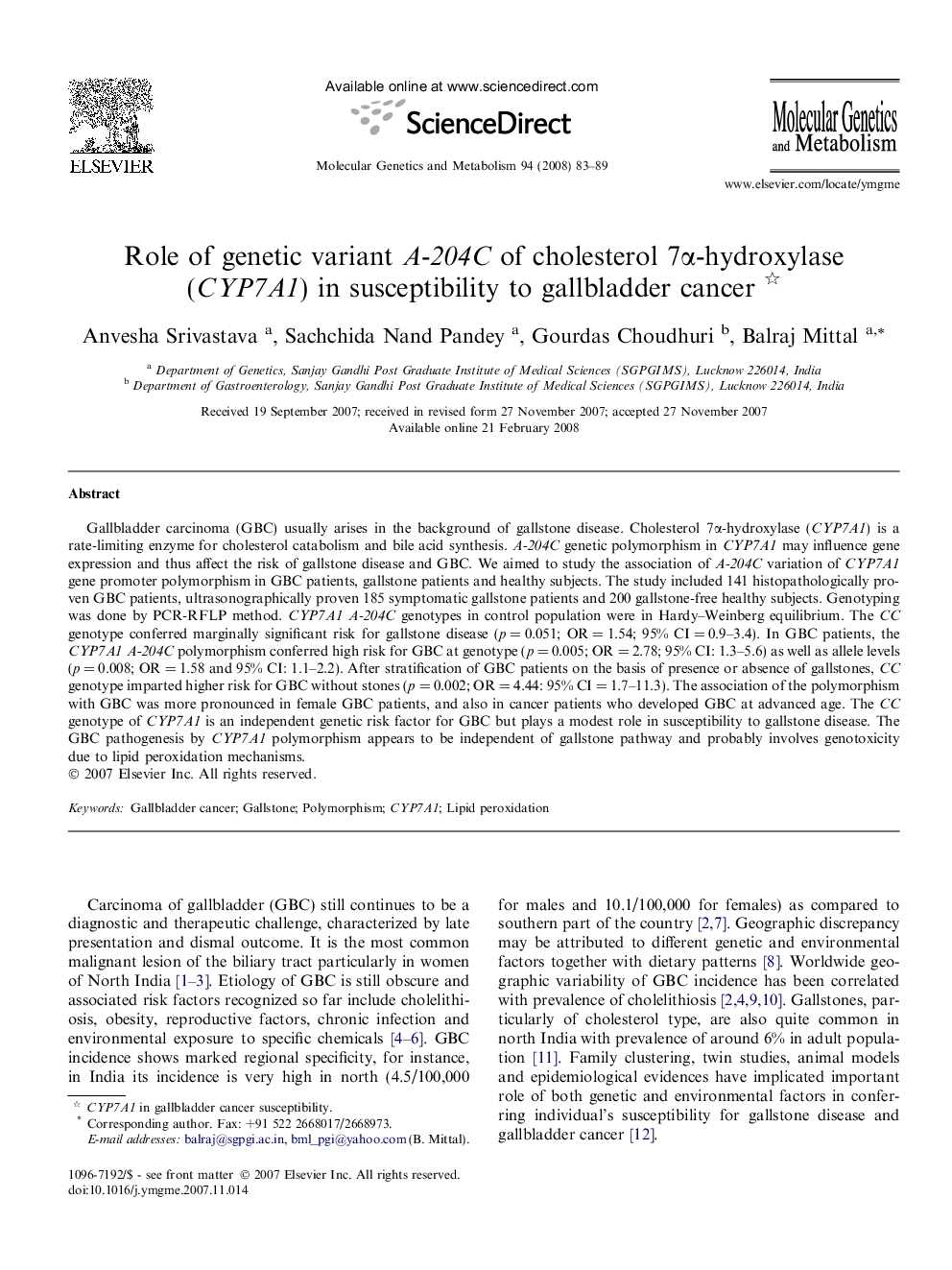| Article ID | Journal | Published Year | Pages | File Type |
|---|---|---|---|---|
| 2000051 | Molecular Genetics and Metabolism | 2008 | 7 Pages |
Gallbladder carcinoma (GBC) usually arises in the background of gallstone disease. Cholesterol 7α-hydroxylase (CYP7A1) is a rate-limiting enzyme for cholesterol catabolism and bile acid synthesis. A-204C genetic polymorphism in CYP7A1 may influence gene expression and thus affect the risk of gallstone disease and GBC. We aimed to study the association of A-204C variation of CYP7A1 gene promoter polymorphism in GBC patients, gallstone patients and healthy subjects. The study included 141 histopathologically proven GBC patients, ultrasonographically proven 185 symptomatic gallstone patients and 200 gallstone-free healthy subjects. Genotyping was done by PCR-RFLP method. CYP7A1 A-204C genotypes in control population were in Hardy–Weinberg equilibrium. The CC genotype conferred marginally significant risk for gallstone disease (p = 0.051; OR = 1.54; 95% CI = 0.9–3.4). In GBC patients, the CYP7A1 A-204C polymorphism conferred high risk for GBC at genotype (p = 0.005; OR = 2.78; 95% CI: 1.3–5.6) as well as allele levels (p = 0.008; OR = 1.58 and 95% CI: 1.1–2.2). After stratification of GBC patients on the basis of presence or absence of gallstones, CC genotype imparted higher risk for GBC without stones (p = 0.002; OR = 4.44: 95% CI = 1.7–11.3). The association of the polymorphism with GBC was more pronounced in female GBC patients, and also in cancer patients who developed GBC at advanced age. The CC genotype of CYP7A1 is an independent genetic risk factor for GBC but plays a modest role in susceptibility to gallstone disease. The GBC pathogenesis by CYP7A1 polymorphism appears to be independent of gallstone pathway and probably involves genotoxicity due to lipid peroxidation mechanisms.
